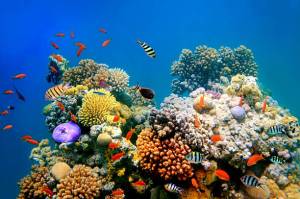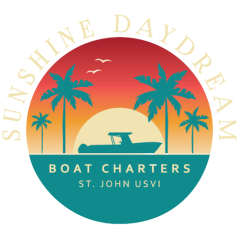Reef-Safe Mineral Sunscreen, St. John, US Virgin Islands
Sunscreen is an essential part of our daily skincare routine, protecting our skin from harmful UV rays. However, many traditional chemical sunscreens contain ingredients that are detrimental to coral reefs and marine life. In response to this environmental concern, reef-safe mineral sunscreens have gained popularity. This article focuses on reef-safe mineral sunscreen and examines the laws and regulations regarding sunscreen in St. John, one of the pristine islands in the US Virgin Islands.
I. Understanding Reef-Safe Mineral Sunscreen
- Composition and Benefits: Reef-safe mineral sunscreens are typically formulated with zinc oxide and titanium dioxide as their active ingredients. Unlike chemical sunscreens, which rely on ingredients such as oxybenzone and octinoxate, mineral sunscreens create a physical barrier that reflects and scatters UV rays away from the skin. This natural approach to sun protection is considered safer for both human health and marine ecosystems.
- Environmental Impact: Chemical sunscreens have been found to contribute to coral bleaching and damage coral DNA, leading to the degradation of coral reefs worldwide. These harmful effects have prompted the need for reef-safe alternatives. Mineral sunscreens do not contain the chemicals known to harm marine life, making them a responsible choice for beachgoers and conservationists alike.
- Effectiveness and Application: Reef-safe mineral sunscreens offer broad-spectrum protection against both UVA and UVB rays. They are effective immediately upon application, making them suitable for outdoor activities. While mineral sunscreens may leave a slight white cast on the skin, newer formulations have minimized this issue. It is crucial to apply an adequate amount of sunscreen and reapply it regularly, especially after swimming or excessive sweating.

Mineral sunscreen helps keep our reefs beautiful
II. Sunscreen Regulations in St. John, US Virgin Islands
- The Ban on Chemical Sunscreens: The US Virgin Islands, including St. John, has taken a proactive stance on protecting its fragile coral reef ecosystems. In 2020, legislation was passed to ban the sale and distribution of sunscreen products containing oxybenzone and octinoxate, both of which have been shown to harm coral reefs.
- Environmental Importance: The reefs surrounding St. John, including the Virgin Islands Coral Reef National Monument, are home to diverse marine life and serve as crucial habitats for the island’s ecosystem. By implementing the sunscreen ban, the government aims to mitigate the negative impact of chemical sunscreens on the local marine environment.
- Compliance and Enforcement: Since the ban’s enactment, businesses in St. John are prohibited from selling or offering for sale sunscreen products containing oxybenzone and octinoxate. To ensure compliance, local authorities conduct regular inspections and impose penalties for violations. Visitors and residents are encouraged to use reef-safe mineral sunscreens or protective clothing while enjoying the island’s stunning beaches and waters.
- Public Awareness and Education: The US Virgin Islands government, along with local environmental organizations, has launched extensive educational campaigns to raise awareness about the importance of reef-safe sunscreens and their positive impact on the marine environment. Public outreach programs, social media campaigns, and informational signage at popular beach locations help disseminate information and encourage responsible sunscreen choices.
- Availability and Alternatives: As the demand for reef-safe mineral sunscreens has increased, retailers in St. John now offer a wide range of options. Both local and international brands have developed mineral-based formulations, making it easier for consumers to find products that provide effective sun protection without harming the reefs. Tourists and residents are encouraged to check product labels for active ingredients and look for certifications indicating reef safety

Cera Ve has an excellent line of mineral sunscreens
Reef-safe mineral sunscreen has emerged as a sustainable alternative to traditional chemical sunscreens, addressing the environmental concerns associated with coral reef damage. In St. John, US Virgin Islands, where the preservation of marine ecosystems is of utmost importance, the government has taken proactive measures to ban the sale and distribution of sunscreens containing oxybenzone and octinoxate.
By choosing reef-safe mineral sunscreens, residents and visitors to St. John can enjoy the beautiful beaches and crystal-clear waters while minimizing their impact on the fragile coral reefs. The ban on chemical sunscreens demonstrates the commitment of the local authorities to protect and preserve the unique marine environment of the island.
Moreover, public awareness campaigns and educational initiatives have played a vital role in informing individuals about the importance of reef-safe sunscreen choices. By providing accessible information and promoting responsible sun protection practices, the government and environmental organizations are empowering people to make informed decisions that benefit both their skin and the marine ecosystems.
The availability of reef-safe mineral sunscreens has significantly increased, with various brands offering effective and eco-friendly options. This accessibility ensures that residents and visitors have access to suitable alternatives that prioritize both their skin health and the well-being of the coral reefs.
In conclusion, reef-safe mineral sunscreens provide a responsible and effective solution to protect our skin while preserving the delicate balance of St. John’s marine ecosystems. By adhering to the sunscreen regulations and choosing reef-safe options, we can all contribute to the long-term sustainability of our beautiful oceans and safeguard the natural treasures that St. John, US Virgin Islands, has to offer.
